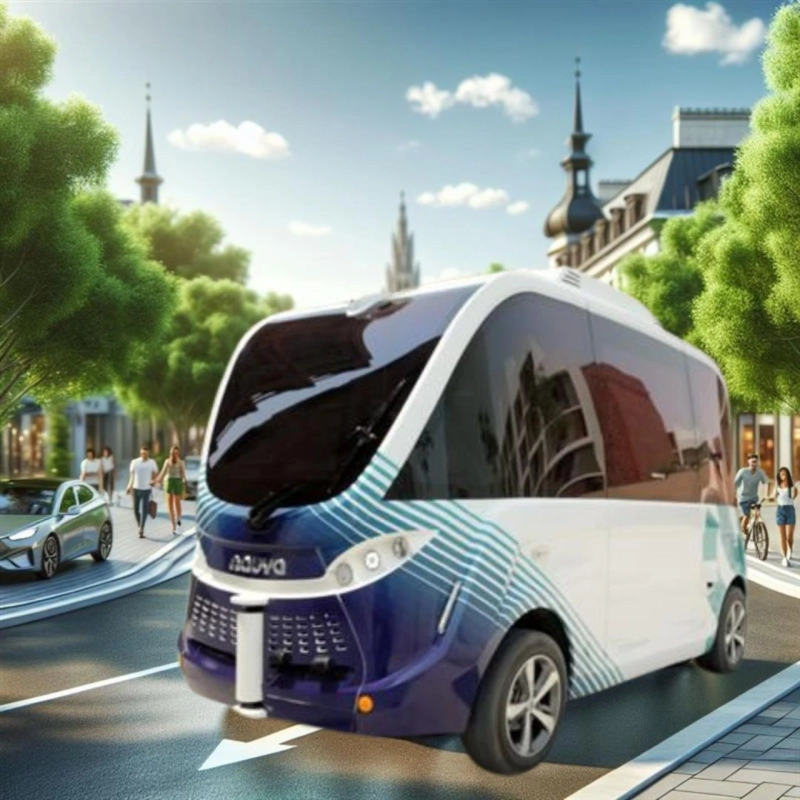In today’s rapidly urbanizing world, cities face unprecedented challenges in managing transportation efficiently while ensuring sustainability. Smart mobility solutions have emerged as a crucial approach to tackling urban congestion, reducing carbon emissions, and enhancing the overall quality of life. These solutions integrate cutting-edge technology, data-driven insights, and innovative transport models to create a seamless, eco-friendly, and efficient urban transportation network.
Masdar City, a global hub for innovation and sustainable development, is at the forefront of implementing smart urban mobility solutions. By leveraging advanced technologies, Masdar City is redefining how people and goods move, promoting a cleaner and smarter future for urban living.
The Growing Need for Smart Mobility Solutions
The traditional urban transport systems are struggling to keep up with the increasing demands of population growth, economic expansion, and climate change concerns. Some of the key challenges include:
- Traffic Congestion: Increased vehicle ownership has led to gridlocked roads, longer travel times, and economic losses due to inefficiencies.
- Environmental Impact: Fossil fuel-based transportation is a major contributor to air pollution and global carbon emissions.
- Infrastructure Strain: Aging transport infrastructure is not equipped to handle the surge in urban populations.
- Limited Public Transport Options: Many cities lack adequate public transport systems, making private vehicle ownership a necessity rather than a choice.
To combat these issues, cities worldwide, including Masdar City, are turning to smart mobility solutions that prioritize sustainability, efficiency, and innovation.
Core Components of Smart Mobility Solutions
Smart urban mobility involves a holistic approach that integrates various innovative technologies and strategies. Some of the key components include:
1. Electric and Autonomous Vehicles (EVs and AVs)
The transition from conventional gasoline-powered vehicles to electric vehicles (EVs) is a fundamental step toward a greener future. EVs significantly reduce carbon footprints and reliance on fossil fuels.
Moreover, autonomous vehicles (AVs) powered by AI and machine learning can optimize traffic flow, reduce accidents, and provide safe and efficient transportation. Masdar City has been a pioneer in deploying autonomous electric shuttles to facilitate sustainable urban mobility.
2. Integrated Public Transport Networks
Seamlessly connected public transport systems, including buses, trams, and metro lines, are critical in smart cities. Digital integration through mobile apps and AI-driven route optimization enhances the commuter experience and promotes the use of mass transit over private vehicles.
3. Micro-Mobility Solutions
Shared mobility options such as e-scooters, e-bikes, and ride-sharing services play a crucial role in last-mile connectivity. These alternatives not only reduce congestion but also provide affordable and eco-friendly travel options within cities.
Masdar City actively promotes micro-mobility through designated pathways for bicycles and e-scooters, encouraging residents and visitors to opt for sustainable transit.
4. Smart Traffic Management Systems
AI-powered traffic monitoring and control systems can significantly enhance road efficiency. Smart traffic lights that adjust based on real-time congestion data help optimize vehicle movement, minimize travel delays, and reduce emissions from idling cars.
5. Mobility as a Service (MaaS)
MaaS is a transformative concept that integrates various modes of transport into a single, user-friendly digital platform. Through mobile apps, users can access shared transport, book rides, check real-time schedules, and make seamless payments, reducing dependency on private vehicles.
How Masdar City is Leading the Smart Mobility Revolution
Masdar City, renowned for its commitment to sustainability and innovation, has implemented several smart mobility initiatives that set a benchmark for cities worldwide. Some of its key projects include:
Autonomous Transport Solutions
Masdar City has introduced autonomous electric shuttles that operate efficiently within the urban landscape. These self-driving vehicles contribute to reducing emissions while providing safe, reliable, and cost-effective transport.
Pedestrian-Friendly Urban Planning
The city is designed to encourage walking and cycling, with well-connected pathways and minimal vehicle dependency. This not only enhances sustainability but also promotes a healthier lifestyle among residents.
Innovative Partnerships
To foster smart mobility innovations, Masdar City collaborates with global technology leaders, startups, and research institutions. These partnerships drive the development of cutting-edge solutions that enhance urban transport efficiency.
The Benefits of Smart Mobility Solutions
The adoption of smart urban mobility solutions offers multiple advantages, including:
- Reduced Carbon Footprint: EVs, renewable energy integration, and sustainable transport options significantly cut greenhouse gas emissions.
- Improved Urban Efficiency: AI-driven traffic management and MaaS optimize road usage, minimizing congestion and travel delays.
- Enhanced Public Health: Reduced vehicular pollution leads to cleaner air and a healthier urban environment.
- Economic Growth: Efficient transport networks boost economic activities by facilitating the smoother movement of goods and people.
- Higher Quality of Life: Smart mobility reduces commuting stress, enhances accessibility, and promotes convenience for urban dwellers.
The Future of Smart Urban Mobility
The future of smart mobility is poised for exciting developments, with emerging technologies such as:
- 5G Connectivity: High-speed internet will enhance real-time traffic monitoring, vehicle-to-vehicle communication, and smart infrastructure integration.
- AI-Powered Predictive Analytics: AI will enable predictive traffic flow management, optimizing routes based on demand patterns.
- Hydrogen-Powered Vehicles: Hydrogen fuel cell technology is gaining momentum as an alternative to traditional EVs.
- Hyperloop and High-Speed Rail: Next-generation transport solutions will revolutionize long-distance travel with ultra-fast and energy-efficient transit systems.
Conclusion
As cities worldwide strive for sustainability and efficiency, smart mobility solutions are becoming a crucial component of urban planning. Masdar City exemplifies a forward-thinking approach by integrating autonomous vehicles, electric transport, micro-mobility, and AI-driven traffic systems into its urban ecosystem.
With the rapid advancements in technology, the future of urban mobility is set to be greener, smarter, and more efficient. Governments, businesses, and individuals must collectively support and adopt sustainable transport solutions to build a more resilient and livable future.
By embracing smart mobility, cities can reduce carbon emissions, enhance efficiency, and improve the overall quality of life, paving the way for a truly sustainable urban future.

